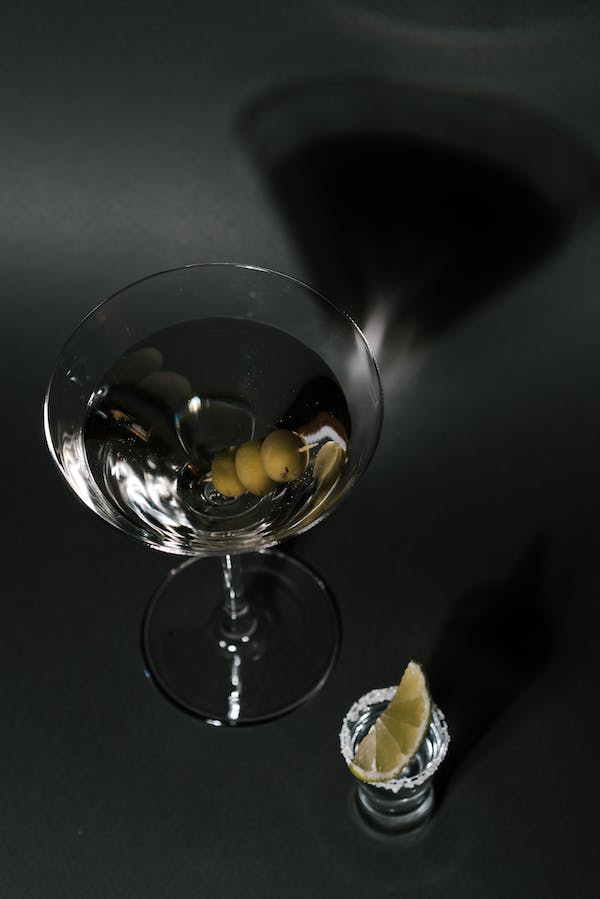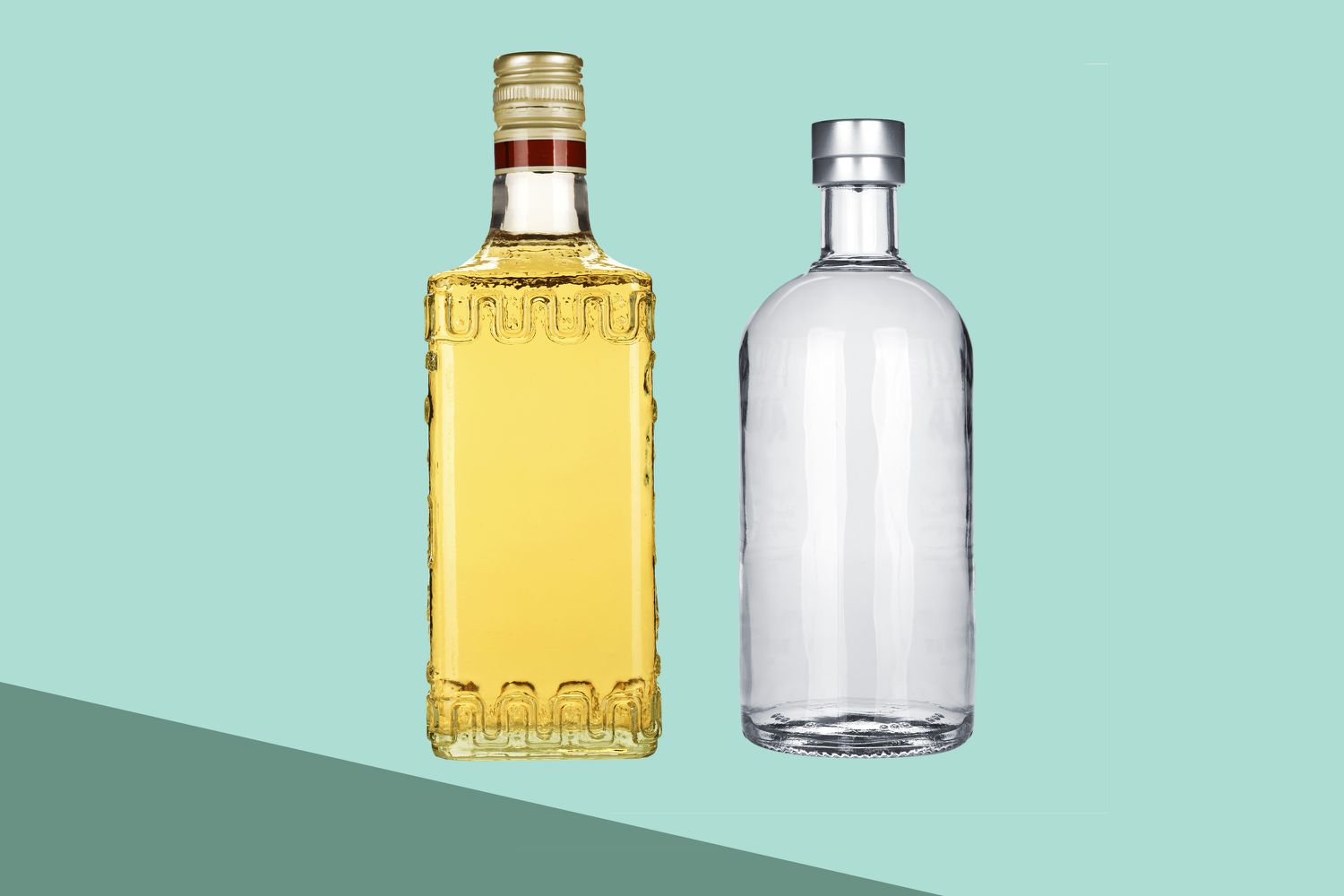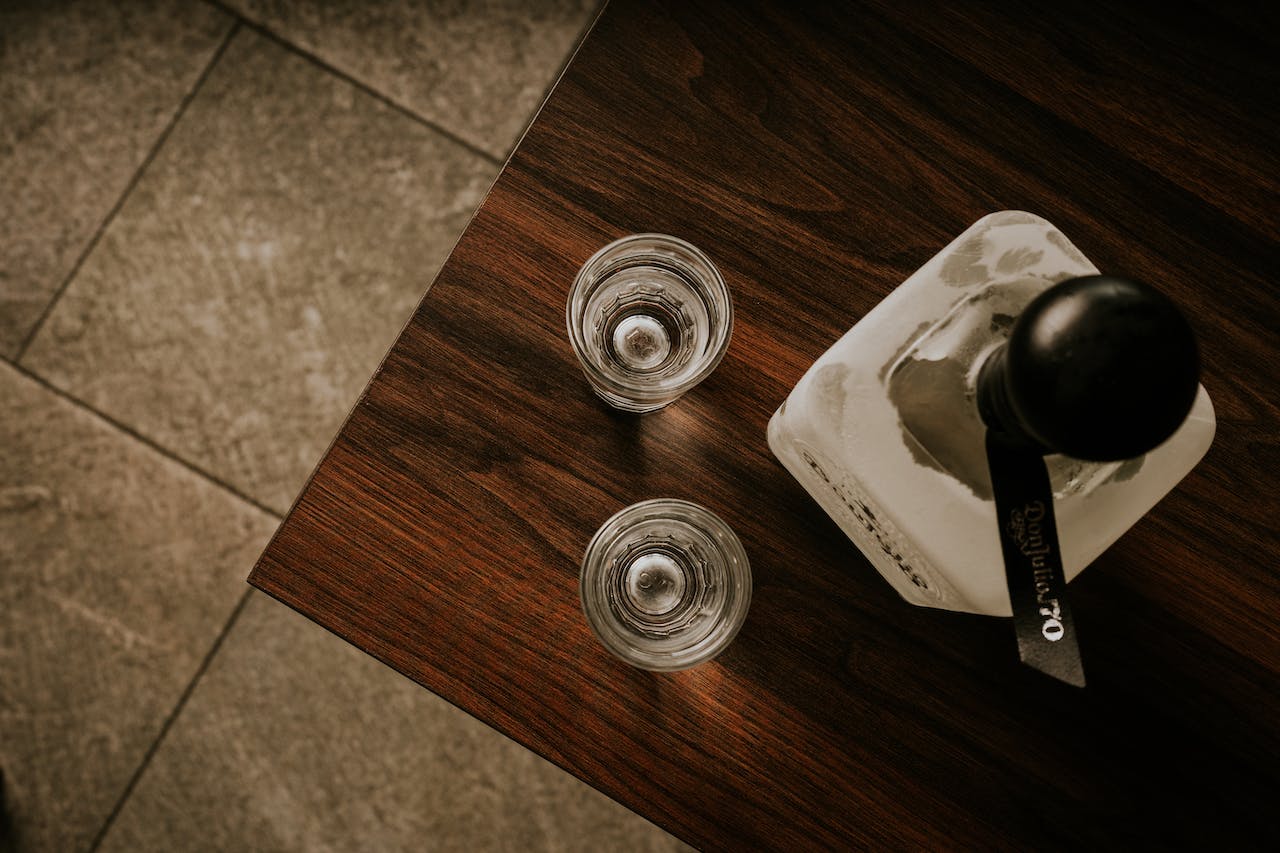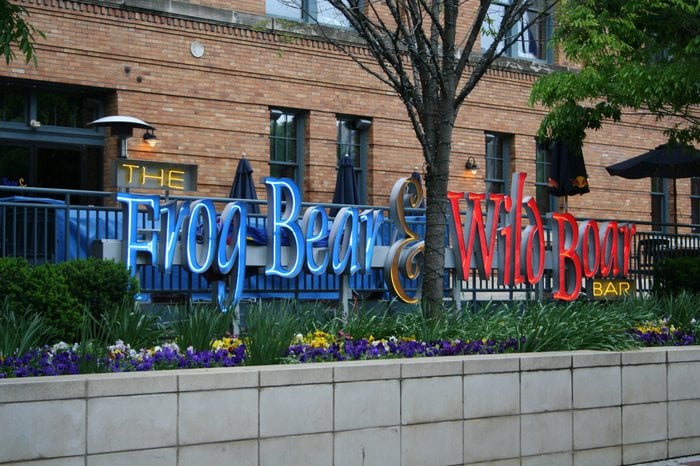Introduction

In the world of alcoholic beverages, the debate between tequila and vodka continues to spark interest. One common question that often arises is whether tequila is stronger than vodka. To debunk some of the misconceptions surrounding this topic, it is important to understand the concept of alcoholic proof and the alcohol by volume (ABV) percentages of tequila and vodka. By exploring the origins, production processes, and ABV percentages of these two spirits, we can gain a clearer understanding of their relative strengths. In this article, we will delve into the facts, unravel the truth behind the myth, and highlight the importance of responsible drinking.
Overview Of The Debate Between Tequila And Vodka Strengths
The debate surrounding the strengths of tequila and vodka has long intrigued many drinkers. While both spirits have different origins and production processes, the main point of contention revolves around their alcohol content. Some argue that tequila is stronger than vodka, citing the perception of a more intense flavor and effects. However, it is important to note that the alcohol strength of both spirits can vary depending on factors such as brands and production methods. To truly understand the relative strengths, it is necessary to consider the alcohol by volume (ABV) percentages. In the following sections, we will explore the origins, production processes, and ABV percentages of tequila and vodka to shed light on the truth behind this ongoing debate.
Understanding The Concept Of Alcoholic Proof
Alcoholic proof is a measure of the alcohol content in a drink and is commonly used to determine the strength of alcoholic beverages. It is typically expressed as a percentage and can help consumers understand the concentration of alcohol in a specific drink. The term “proof” originated from the practice of using gunpowder to test the alcohol content. If gunpowder soaked in a drink ignited, it was considered to be “proof” of its strength. In the United States, proof is defined as double the alcohol by volume (ABV) percentage, meaning a drink with 40% ABV would be considered 80 proof. Understanding the concept of alcoholic proof is crucial when comparing the strengths of different spirits like tequila and vodka.
Tequila: Origins And Production

Tequila has a rich history that dates back to ancient times in Mexico. It originated from the blue agave plant, which was cultivated and harvested by the Aztecs for its sweet sap. The process of making tequila involves harvesting the agave plant, roasting the piñas (the heart of the plant), extracting the juice, fermenting it, and then distilling it to produce the final spirit. The traditional method of tequila production, known as the tahona process, involves using a large stone wheel to crush the piñas. However, modern tequila production also utilizes more efficient methods such as shredding or roller mill extraction.
A Brief History Of Tequila
Tequila has a rich and fascinating history that dates back to ancient times in Mexico. This iconic spirit originated from the blue agave plant, which was cultivated and harvested by the Aztecs for its sweet sap. The production of tequila has evolved over the centuries, with the Aztecs using the tahona process to crush the agave piñas. Today, modern methods such as shredding or roller mill extraction are also employed. Tequila has become a symbol of Mexican culture and heritage, and its popularity continues to grow around the world.
Insights Into The Tequila Production Process
During the tequila production process, the harvested blue agave plants are first roasted to release the sugars. The cooked agave is then crushed to extract the juice, which is fermented and distilled to create tequila. The type of tequila produced depends on the aging process it undergoes. Blanco tequila is unaged, while Reposado and Añejo tequilas are aged in oak barrels for different periods of time. The aging process adds depth and complexity to the final product. The production of tequila requires precision and expertise to ensure the highest quality and consistent flavor profile.
Vodka: Origins And Production

Vodka, a popular spirit enjoyed worldwide, has its origins in Eastern Europe, particularly Poland and Russia. It is believed to have been produced as early as the 8th or 9th century. Vodka is traditionally made by distilling fermented grains or potatoes. However, modern production methods also incorporate other ingredients, such as fruits or grains like wheat, rye, or corn. The production process involves several steps, including fermentation, distillation, and filtration to achieve a smooth and clean taste. Vodka is known for its versatility and is commonly used in cocktails or consumed neat. The alcohol content of vodka typically ranges between 35% and 50% ABV.
A Brief History Of Vodka
Vodka has a rich and intriguing history that dates back centuries. It originated in Eastern Europe, specifically in Poland and Russia, around the 8th or 9th century. The word “vodka” itself is derived from the Slavic word for “little water.” Initially, vodka was used for medicinal purposes and as an ingredient in various herbal remedies. Over time, its popularity grew, and it became a staple in social gatherings and celebrations. Today, vodka is enjoyed worldwide for its smooth taste and versatility in cocktails. Its fascinating history adds to its allure and enduring popularity.
Understanding The Vodka Distillation Process
The distillation process is crucial in creating vodka’s smooth and pure taste. Vodka is typically made from fermented grains or potatoes. The process begins with mashing the chosen ingredient and adding water to create a mash. This mash is then fermented, converting the sugars into alcohol. The alcohol is then distilled multiple times to remove impurities and increase the alcohol content. Through a series of heated distillations, the liquid is separated and purified, resulting in a high-proof spirit. The final product is then diluted with water to achieve the desired alcohol by volume (ABV) percentage.
Measuring Alcohol Strength

One important aspect when discussing the strength of alcoholic beverages is the measurement of alcohol content. The most common measurement used is Alcohol by Volume (ABV), which refers to the percentage of alcohol in a drink. This measurement is determined by the ratio of alcohol to the total volume of the drink. For example, a drink with 40% ABV means that 40% of its volume is pure alcohol. Another measurement that is sometimes used is proof, which is double the ABV. For instance, a drink with 40% ABV would be 80 proof. These measurements provide a standardized way to compare and understand the strength of different alcoholic beverages.
Understanding Alcohol By Volume (ABV)
Alcohol by Volume (ABV) is a commonly used measurement to determine the strength of alcoholic beverages. It refers to the percentage of alcohol present in a drink in relation to its total volume. For example, a drink with an ABV of 40% means that 40% of its total volume is pure alcohol. ABV is a standardized measurement that allows consumers to compare the strength of different beverages. It is important to note that ABV is just one factor that determines the perceived strength of a drink, as other factors such as the specific type of alcohol and the way it is consumed can also influence its effects on the body.
Comparing Tequila And Vodka’s Typical ABV Percentages
Tequila and vodka vary in terms of their typical ABV percentages. Tequila typically ranges between 35-55% ABV, with some of the stronger variants reaching up to 60% ABV. On the other hand, vodka is known for its higher alcohol content, with most brands falling between 40-50% ABV. In fact, some vodka brands can have ABV as high as 95-96%. It is important to note that these are general ranges, and specific brands and variations may have slightly different ABV percentages. Nonetheless, vodka generally has a higher ABV compared to tequila.
Debunking The Myth: Tequila Vs Vodka Strength

Despite popular belief, tequila is not inherently stronger than vodka. The misconception stems from the fact that tequila typically has a higher alcohol content than some vodka brands. However, it is important to remember that the strength of any alcoholic beverage is determined by its alcohol by volume (ABV) percentage. While tequila can have ABV percentages ranging from 35-55%, vodka usually falls between 40-50% ABV. Ultimately, the strength of a drink depends on its specific brand and variation, rather than its category of tequila or vodka. So, it’s essential to check the ABV percentage before assuming the strength of a particular spirit.
Clarifying Misconceptions About Tequila Being Stronger Than Vodka
Tequila is often misunderstood to be inherently stronger than vodka. However, this is not necessarily true. While tequila tends to have a slightly higher alcohol content than some vodka brands, it does not automatically make it stronger. The strength of a spirit is determined by its alcohol by volume (ABV) percentage. Tequila typically ranges from 35-55% ABV, while vodka falls between 40-50% ABV. It is important to remember that the strength of a drink depends on its specific brand and variation. So, it is crucial to check the ABV percentage before assuming the strength of a particular spirit.
Exploring Factors That Can Influence The Perception Of Strength
The perception of strength in tequila and vodka can be influenced by various factors. One significant factor is the drinker’s tolerance and experience with each spirit. Those more accustomed to drinking vodka may perceive it as less strong compared to tequila due to familiarity. Another factor is the method of consumption – the way the spirits are served and mixed can affect the perception of strength. Additionally, the quality and purity of the alcohol, as well as the ingredients used in the production process, can play a role in the perceived strength of the spirits.
Conclusion

In conclusion, the debate surrounding the strength of tequila and vodka has been debunked. While tequila does typically have a slightly higher alcohol content than vodka, it is important to note that the perception of strength can be influenced by various factors. These factors include the drinker’s tolerance and experience with each spirit, the method of consumption, and the quality and purity of the alcohol. It is crucial for individuals to drink responsibly and be aware of their own limits when consuming any alcoholic beverage.
Summing Up The Discussion On Tequila And Vodka Strengths
After exploring the origins, production processes, and measuring alcohol strength of tequila and vodka, it is clear that tequila is not necessarily stronger than vodka. While tequila does typically have a slightly higher alcohol content than vodka, the perception of strength can be influenced by factors such as the drinker’s tolerance, method of consumption, and the quality of the alcohol. It is important to note that both tequila and vodka should be consumed responsibly, and individuals should be aware of their own limits when enjoying these spirits.
Highlighting The Importance Of Responsible Drinking
It is important to emphasize the significance of responsible drinking when discussing the strengths of tequila and vodka. Responsible drinking involves consuming alcoholic beverages in moderation and being mindful of one’s own alcohol tolerance. It is crucial to prioritize one’s well-being and make informed choices when it comes to alcohol consumption. Understanding the alcohol content and knowing one’s limits can help prevent excessive drinking and potential negative consequences. By practicing responsible drinking, individuals can enjoy tequila and vodka safely and responsibly. Remember, always drink responsibly.
Frequently Asked Questions: Is Tequila Stronger Than Vodka?
Q: Is tequila stronger than vodka?
A: Yes, in terms of alcohol content, tequila tends to be stronger than vodka. Tequila typically has an alcohol by volume (ABV) content of around 40-50%, while vodka usually contains about 35-50% ABV.
Q: Does this mean tequila always has a higher alcohol content than vodka?
A: Not necessarily. Both tequila and vodka come in a range of alcohol strengths, so you can find variations with lower or higher alcohol content within each spirit. However, in general, tequila does tend to have a higher average ABV compared to vodka.
Q: What causes the difference in alcohol content between tequila and vodka?
A: The main factor influencing the alcohol content of distilled spirits like tequila and vodka is the distillation process. Tequila is made from the blue agave plant, which goes through a specific distillation process, while vodka is typically made by distilling fermented grains or potatoes. The distillation process affects the purity and alcohol concentration of the final product.
Q: Are there any other differences between tequila and vodka besides alcohol content?
A: Yes, tequila and vodka do differ in terms of flavor, production methods, and cultural origin. Tequila is known for its distinctive taste with earthy, fruity, and sometimes smoky notes, while vodka is generally known for its neutral and odorless taste. Tequila is primarily produced in Mexico, while vodka has diverse geographical origins.
Q: Does the higher alcohol content in tequila mean it will get me drunk faster?
A: While it’s true that higher alcohol content can contribute to quicker intoxication, it’s essential to drink responsibly and in moderation regardless of the spirit you choose. Several factors, including body weight, metabolism, tolerance, and consumption speed, also influence how quickly alcohol affects an individual.
Q: Can I substitute tequila for vodka in a cocktail or vice versa?
A: It depends on the specific cocktail recipe you wish to make. Some cocktails have distinct flavor profiles that work better with either tequila or vodka. However, in many cases, these spirits can be substituted for one another. Keep in mind that the substitution may slightly alter the taste of the drink.
Q: Which one is healthier, tequila, or vodka?
A: Neither tequila nor vodka is inherently healthier than the other. Both spirits contain alcohol, which should be consumed in moderation. Distilled spirits like tequila and vodka have no fat or cholesterol but contain calories. The health impact depends on your overall consumption habits and lifestyle choices.
In summary, tequila generally has a higher alcohol content than vodka. However, it’s important to remember that the alcohol content can vary within each spirit. Both tequila and vodka offer unique flavors, production methods, and cultural associations. Regardless of your choice, responsible consumption is key.

Frog Bear & Wild Boar is a vibrant and dynamic establishment located at 343 N Front St. in the heart of the Arena District in Columbus, OH. Our story began with a passion for creating an inviting and lively environment where friends, families, and colleagues can come together to enjoy great food, refreshing drinks, and fantastic entertainment. Founded on the principles of warm hospitality, delicious cuisine, and a commitment to community, Frog Bear & Wild Boar has become a beloved gathering place for locals and visitors alike. Our dedication to delivering exceptional experiences has earned us a reputation for being a go-to destination for memorable outings and special occasions.